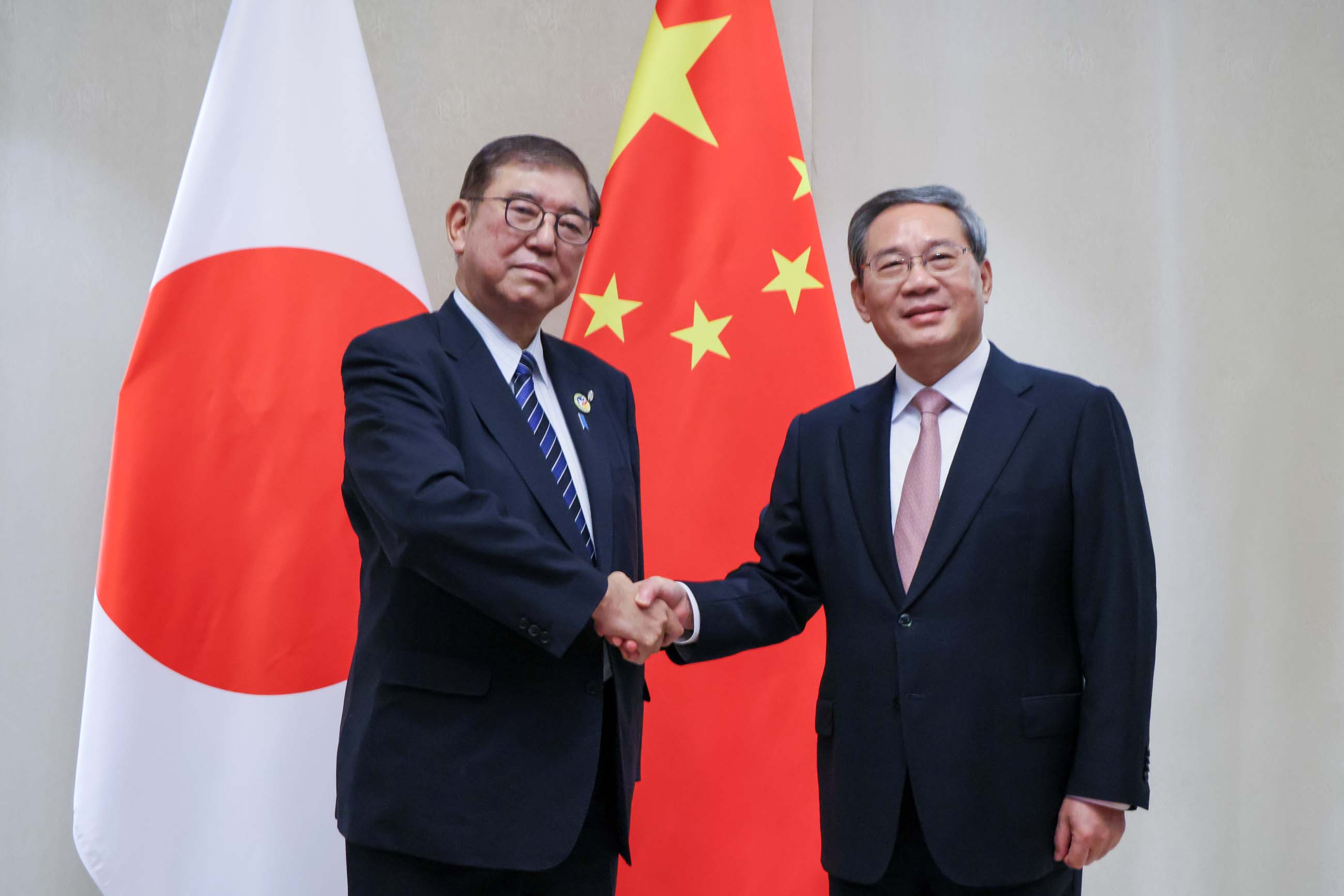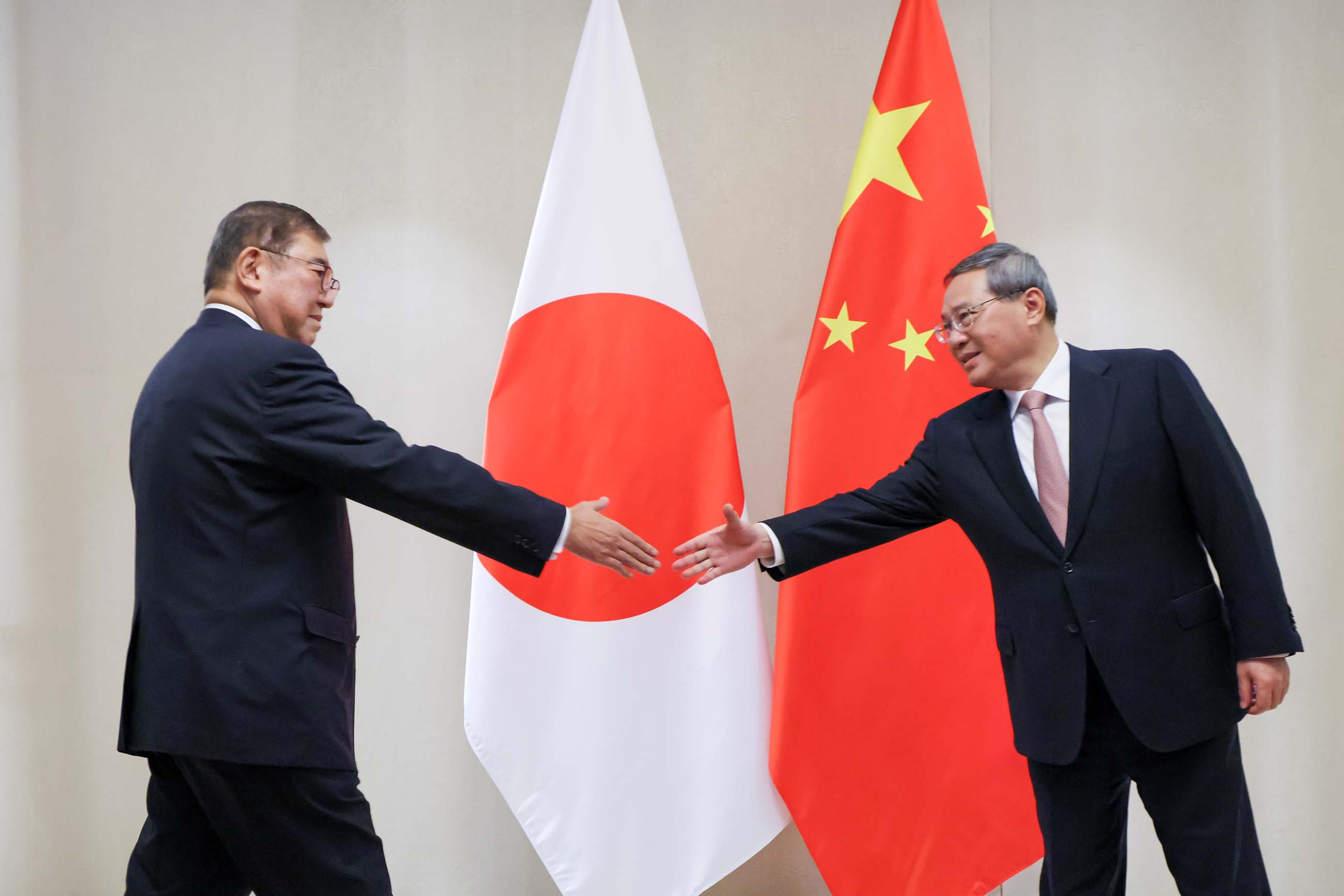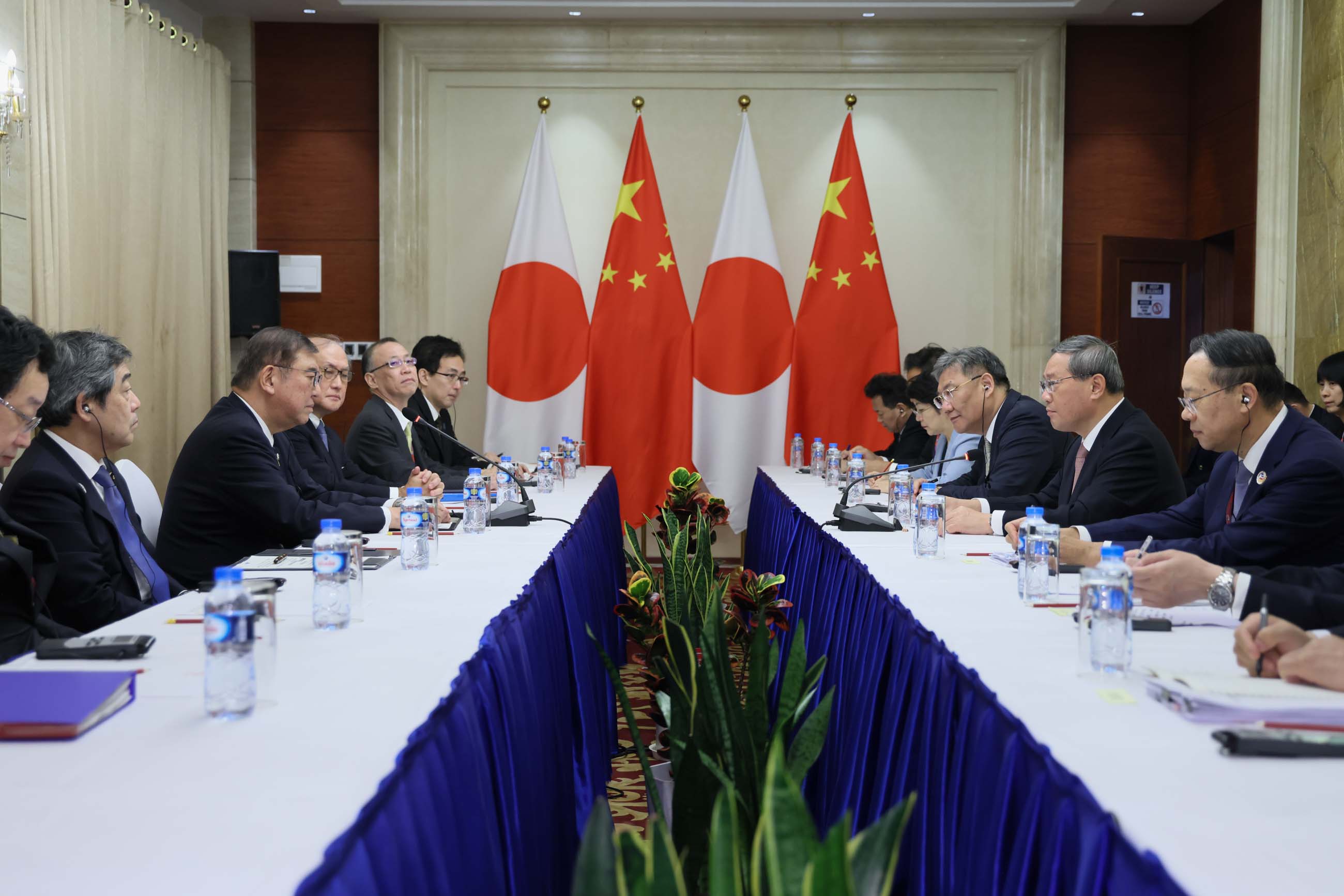Japan-China Summit Meeting (Summary)
October 10, 2024
[Provisional translation]
On October 10 commencing at 5:30 p.m. (7:30 p.m. JST on October 10) for approximately 35 minutes through simultaneous interpretation, Mr. ISHIBA Shigeru, Prime Minister of Japan, who is visiting Vientiane in the Lao People's Democratic Republic to attend the ASEAN-related Summit Meetings, held a summit meeting with Mr. Li Qiang, Premier of the People’s Republic of China. The overview of the meeting is as follows.
1. Overview
The two leaders confirmed that Japan and China continue to share a broad direction of comprehensively promoting a “Mutually Beneficial Relationship Based on Common Strategic Interests” and building “constructive and stable Japan-China relations.” The two leaders also confirmed to maintain multi-layered communications between Japan and China at all levels, including at the summit level, with a view to realizing concrete outcomes.
In this context, Prime Minister Ishiba emphasized that while there is potential for cooperation as well as issues and concerns between the two countries, he hopes to work together to ensure that the people of both countries could benefit from the development of the relationship through the efforts of both governments.
2. Bilateral cooperation
The two leaders both expressed their appreciation for the announcements made by their respective governments regarding the discharge of ALPS treated water into the sea and China’s import restrictions on Japanese aquatic products. In this vein, Prime Minister Ishiba called for the early restoration of imports of Japanese aquatic products.
In addition, Prime Minister Ishiba once again requested to resume discussions on the resumption of Japanese beef exports and the expansion of exports of Japanese rice to China, and also raised the point that cooperation should be promoted in fields such as green economy, including environment and energy conservation, as well as medical care, nursing care, and healthcare. The two leaders concurred on making efforts to realize concrete progress in those areas of cooperation by utilizing occasions including the next Japan-China High-Level Economic Dialogue.
3. Bilateral Issues and Concerns
Prime Minister Ishiba reiterated Japan’s serious concerns about the situation in the East China Sea, including the buoy installed by China, and the intensification of Chinese military activities in areas surrounding Japan including the intrusion into Japan’s territorial airspace by a Chinese military aircraft in August and the navigation of an aircraft carrier of the Chinese Navy in the vicinity of Japan’s territorial waters in September, and called for a full explanation of the intrusion into Japan’s territorial airspace.
In addition, Prime Minister Ishiba pointed out that the recent incidents resulting in the deaths and injuries of Japanese School students and others in Suzhou and Shenzhen have caused a sharp rise in anxiety among Japanese nationals residing in China, and he strongly urged the Chinese side to clarify the facts and provide explanations as soon as possible and to ensure the safety and security of Japanese nationals. In relation to this, Prime Minister Ishiba also raised the importance of a swift response by the Chinese side, including cracking down on malicious and anti-Japanese social media posts. Furthermore, Prime Minister Ishiba reiterated Japan’s position on the cases of detention of Japanese nationals in China and called for the early release of the detained Japanese nationals.
Prime Minister Ishiba expressed Japan’s serious concerns about the situations in the South China Sea, Hong Kong, Xinjiang Uyghur Autonomous Region and others. With regards to Taiwan, Prime Minister Ishiba stated that Japan is closely monitoring relevant developments including military activities and reiterated that peace and stability across the Taiwan Strait is extremely important for the international community, including Japan.
4. International Situation
The two leaders also exchanged views on regional issues, such as the situation regarding North Korea including the nuclear and missile issues as well as the abductions issue.


